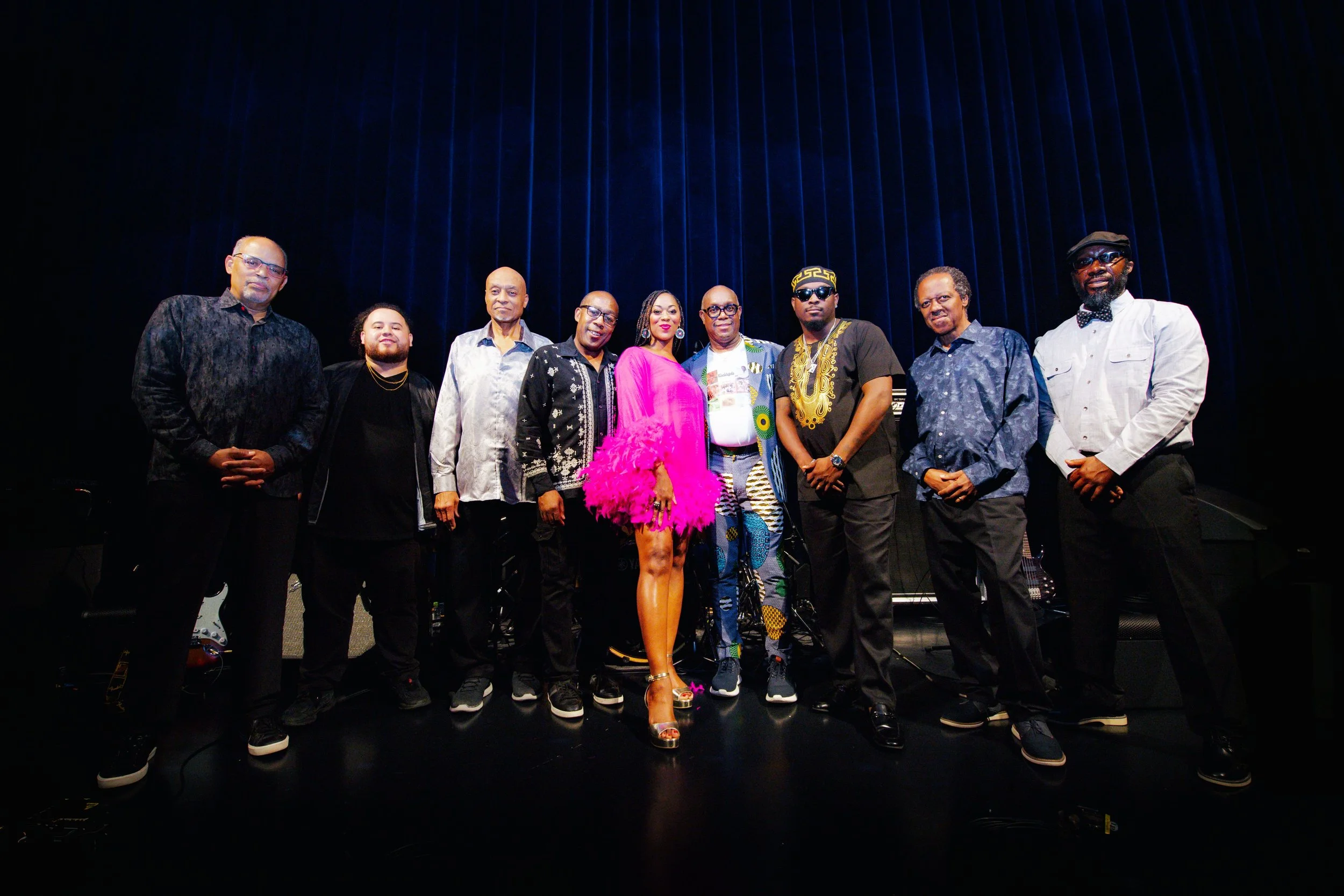Photo Courtesy of Artist
jazz, R&B, and funk
Washington, D.C.
The Blackbyrds were at the cutting edge of jazz fusion, R&B, and funk in the 1970s, pushing the boundaries of Black popular music forward in one of the most musically fertile decades of the past century. Established in 1973 in Washington, D.C., the group was originally brought together by legendary jazz trumpeter Dr. Donald Byrd. Byrd recruited some of the most talented students from Howard University’s jazz studies program, which he had helped found a year earlier in response to demands for a shift away from a European-centric curriculum and more Black studies courses. As an academic with an active music career, Byrd wanted to “bridge the gap between academia and the real world” by exposing college students to the actual music business of touring and recording.
Byrd was a perfect mentor, too. In 1973, at the age of 40, he already had a storied career, both as a member of Art Blakey’s Jazz Messengers and as a solo artist. He came of age during the height of the bebop era and performed with many of the greats, including Coltrane, Monk, and Sonny Rollins, and recorded multiple albums for the Blue Note label. That year saw the release of one of his seminal albums, Black Byrd, an electrified jazz-fusion masterpiece that gave the burgeoning student band its name and musical template. The original lineup, a sextet, consisted of Kevin Toney on keyboards, Keith Killgo on vocals and drums, Joe Hall on bass, Allan Barnes on saxophone and clarinet, and Barney Perry on guitar. Killgo was a child prodigy who grew up steeped in jazz, playing drums with such greats as Sonny Stitt, Stan Getz, and Miles Davis before he turned 11. Hailing from Michigan, Killgo came to Howard after a stint in the Joe Henderson Quintet. His extensive onstage experience made him a natural leader for the fledgling group.
They cut their teeth as Byrd’s touring band and made their recording debut on his 1973 album Live: Cookin' with Blue Note at Montreux. The group recorded their self-titled studio debut the following year. Produced by Byrd and veteran producer Larry Mizell, The Blackbyrds put the group on the map with “Do it, Fluid,” a funky, laid-back party anthem that reached #23 on the Billboard Hot Soul Singles chart. The group followed that initial success with a string of albums over the next five years, including Flying Start (1974), which yielded their biggest hit, the Grammy-nominated “Walking in Rhythm,” and City Life (1975), which contained the iconic “Rock Creek Park,” a sizzling ode to summer nights in D.C. that remains one of the most sampled jazz-funk records to this day. Though the original group ended their recording career in 1980, their signature sound combining jazz techniques with R&B, polish, gritty funk, and even a little sanctified gospel became a bedrock of the emerging hip-hop movement. The Blackbyrds have been sampled by countless hip-hop artists, most notably Grandmaster Flash, Tupac Shakur, De La Soul, Gang Starr, MF Doom, and Wiz Khalifa.
Keith Killgo reformed the Blackbyrds in 1999, and the band recorded Gotta Fly in 2012. The Blackbyrds continue to tour in Europe and the U.S. with a current lineup consisting of original members Keith Killgo and Joe Hall, with Harold Barney on keys, Paul Spires on vocals, Thad Wilson on trumpet, Tom O’Grady on keyboard and trombone, Marshall Keys on saxophone, Sean Anthony on percussion, and Charles Wright on guitar. Their appearance at the Richmond Folk Festival coincides with the 50th anniversary of the legendary “Rock Creek Park.”


